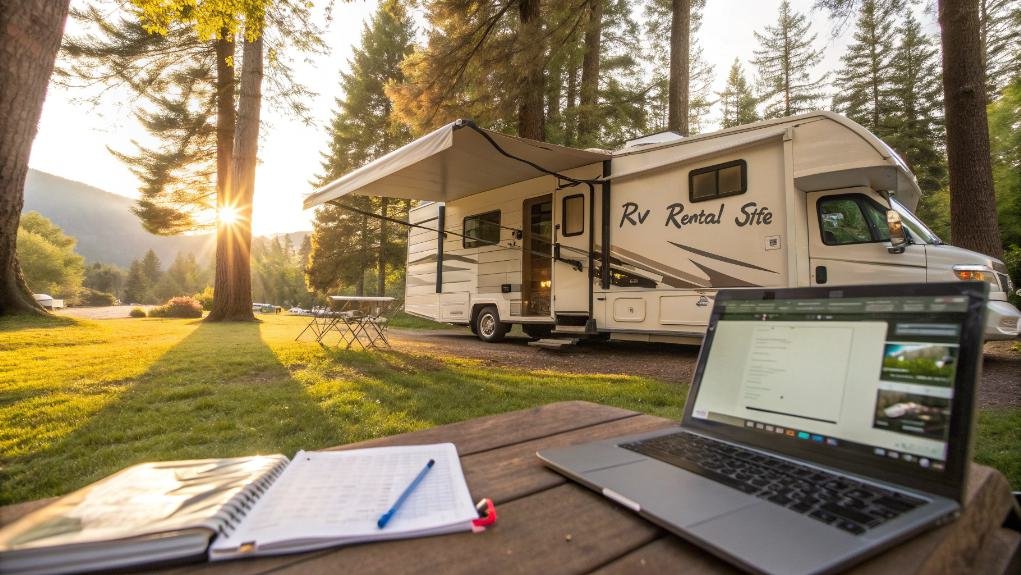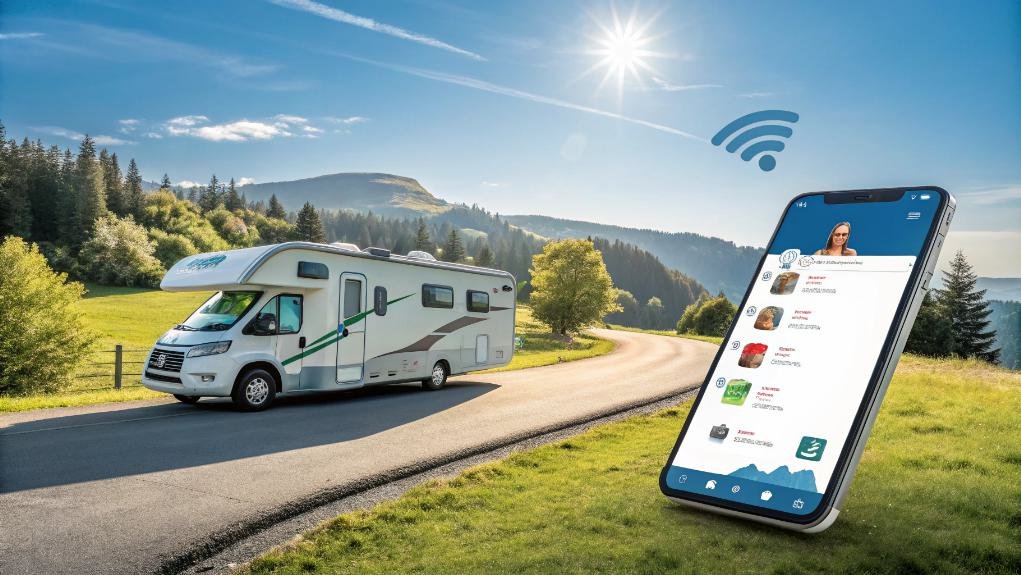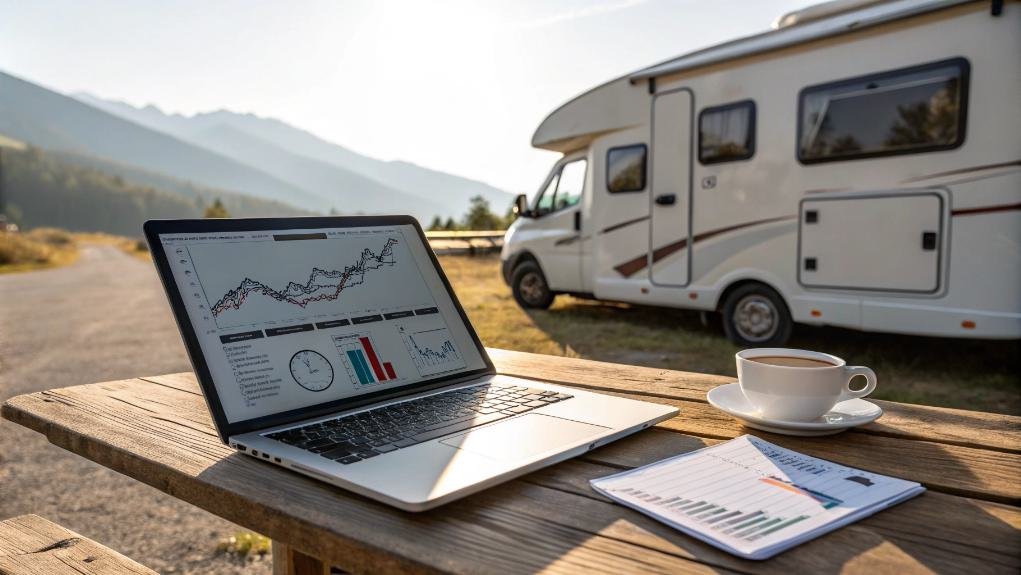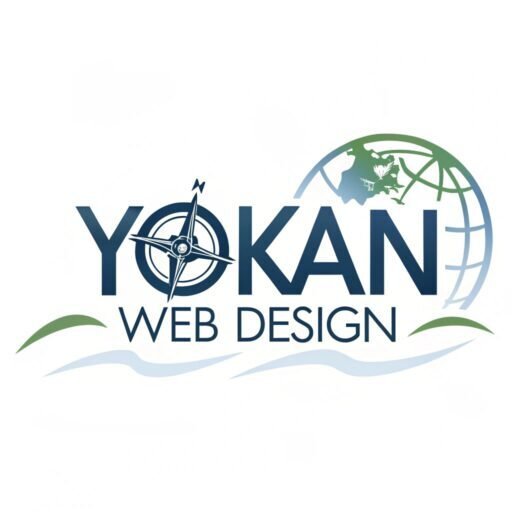If you're looking to boost traffic and bookings for your RV rental business, understanding the power of SEO is essential. By implementing targeted strategies, you can enhance your online visibility and attract the right customers. It's not just about having a website; it's about optimizing every aspect of your online presence to drive conversions. But where do you start, and what common pitfalls should you avoid? Exploring these questions could reveal the key to releasing your business's full potential.
Understanding SEO Benefits

When you invest in SEO for your RV rental business, you're not just enhancing your online presence; you're releasing a treasure trove of benefits that can greatly impact your growth. One of the key advantages is improved digital marketing ROI. By focusing on keyword research, you can identify the specific search terms potential customers use. This targeted approach drives high-quality traffic to your website, increasing your lead conversion rates.
Effective content marketing plays an essential role in this process. High-quality, engaging content not only ranks better in search results but also boosts your credibility. When you consistently appear at the top of search results, you're promoting your company 24/7, enhancing visibility and user engagement. This visibility translates into more leads and sales, contributing to your market share growth. Additionally, with a potential increase in lead conversion rates by 13%, your business can significantly benefit from optimized SEO strategies.
Moreover, SEO provides measurable success with real numbers. You can analyze data to refine your strategies continuously, ensuring you're always improving.
Optimizing RV Listings

Optimizing your RV listings is vital for attracting potential customers and improving your online visibility. A solid keyword strategy is the backbone of effective listing optimization. Start by incorporating relevant long-tail keywords that reflect your unique offerings and the local area. This not only helps in targeting local searches but also sets you apart from competitors.
Ensure listing consistency across all platforms, as discrepancies can confuse potential renters and harm your credibility. Use Google My Business to enhance local search visibility, and remember that mobile optimization is essential for providing a seamless user experience. Listings must be responsive, adapting to various devices to capture more traffic. Increased website traffic through effective keyword integration can significantly enhance your visibility.
High-quality content is key; it not only boosts your search rankings but also engages visitors. Regular updates keep your listings fresh and improve search engine crawlability.
Don't forget to optimize URLs by including keywords, as this aids in better recognition by search engines. Finally, positive reviews and local citations enhance your credibility and visibility.
Using Social Media Effectively

How can you harness the power of social media to elevate your RV rental business? By employing effective social media strategies, you can boost content engagement and connect with potential customers. Here's how to maximize your impact:
- Create high-quality visuals: Showcase your RV rentals in action with stunning photos and videos.
- Share valuable content: Offer tips for memorable adventures that resonate with your audience. Additionally, consider targeting specific renter groups to craft tailored messages that align with their needs.
- Highlight customer testimonials: Build trust and loyalty by sharing positive reviews from satisfied renters.
- Diversify your formats: Use tutorials, travel blogs, and Reels to keep your content fresh and engaging.
Engaging consistently with your followers is essential. Respond to comments and messages promptly to foster community.
Collaborate with influencers in the RV niche to expand your reach and enhance visibility.
Don't forget to leverage each platform's unique features—Facebook for community building, Instagram for visuals, YouTube for tutorials, and TikTok for quick, engaging videos.
With these social media strategies, you'll not only increase content engagement but also drive more traffic and bookings for your RV rental business.
Building an Effective Website

A well-designed website is vital for your RV rental business, as it serves as both your online storefront and a primary tool for attracting customers.
Prioritize website aesthetics to create an inviting atmosphere that showcases your RV offerings. Use high-quality images and detailed descriptions to give potential renters a clear view of what you provide.
Focus on a user-friendly interface that guarantees easy navigation. Your home page should clearly present your services, while the RV rental page must list available vehicles with specs, rental prices, and a seamless booking system. Additionally, having an optimized design is crucial to ensure a hassle-free rental experience for both renters and owners.
An FAQ page can guide customers, addressing common questions and concerns effectively.
Make certain your website is mobile-friendly, providing a hassle-free experience across all devices. Secure connections (HTTPS) are vital for building trust, emphasizing safety for both renters and owners.
Additionally, fast loading speeds enhance user experience, keeping visitors engaged.
Invest in a content strategy that targets specific keywords related to your offerings, and showcase customer testimonials to build credibility.
Common SEO Mistakes to Avoid

Creating an effective website is just the beginning of your RV rental business's online success; avoiding common SEO mistakes is vital for maximizing your visibility. Many businesses struggle with SEO due to oversights that can hinder their growth. Here are some common pitfalls to steer clear of:
- Poor Keyword Research: Failing to identify the right keywords can lead to low visibility.
- Keyword Stuffing: Overusing keywords might get you penalized by search engines.
- Ignoring Long-Tail Keywords: These specific phrases often bring in more qualified traffic.
- Inconsistent Keyword Use: Mixing keywords across pages confuses search engines.
Additionally, make certain that your content quality is at the forefront of your strategy. Thin content or duplicate content can negatively affect your rankings and user engagement. Analytics provide insights into website performance, enabling you to refine your strategy and target the right audience more effectively.
It's also essential to understand user intent; not matching your content to what potential customers seek can result in unqualified traffic.
